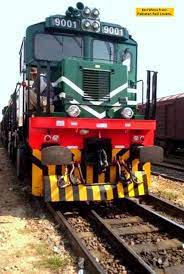
The bank outlines policy reforms to turn around the railways
Spokesman Report
ISLAMABAD/ HONG KONG: The Asian Development Bank (ADB) in a study has revealed that 23% the Pakistan Railway (PR) locomotives and 24% of freight wagons are unserviceable. The ADB study assessed the state of Central Asia Regional Economic Cooperation Program (CAREC) region railways and identified opportunities for commercialization, investments, and reforms to boost the public transportation system.
The research evaluated 466 diesel railway locomotives and 16,159 freight wagons. While changes in regional trade patterns have led to higher demand for long-distance railway transport, the railways in the CAREC region often struggle to compete with other long-distance railway corridors and other modes of transport. “Many lack commercial orientation and operate at a loss,” the study noted.
To reverse losses, ADB has proposed six policy reforms to improve the railway system in Central Asia: Modernize commercial accounting systems to accurately register gains and losses, use of enterprise resource planning to benefit from commercialization, Liberalizing tariffs to compete with other means of public transportation, introduce public service obligations to encourage use by citizens, examine non-core activities for privatization of nonessential services and Invite private sector participation to boost competitiveness.
The bank has claimed that Pakistan or any other CAREC region railway can become profitable by introducing these reforms. Moreover, the study highlighted that Pakistan also needs to conduct capacity building of its staff. “The measures will surely supplement regional development and improve people’s quality of life.” The bank underscored that CAREC Railway Strategy 2017 to 2030 Regional Program aims to improve connectivity in 11 central Asian countries, namely, Pakistan, China, Kazakhstan, Uzbekistan, Azerbaijan, Georgia, Mongolia, Turkmenistan, Kyrgyzstan, Tajikistan, and Afghanistan.







